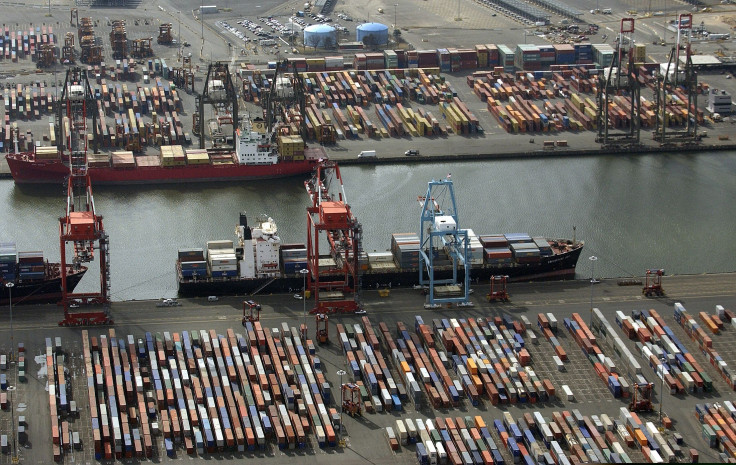New York City Port Strike: Longshoremen Launch Unexpected Work Stoppage, Disrupting Operations In Apparent Wildcat Walkout

More than 1,000 longshoremen walked off the job in the New York City area Friday, disrupting operations at the East Coast’s busiest port system. The cause of the unexpected work stoppage remains unclear.
The dockworkers, who are members of the International Longshoremen’s Association, stopped working around 10 a.m. EST Friday, according to the Port Authority of New York and New Jersey. The stoppage reportedly affects each of the six New York City-area terminals, the third-busiest port complex in the United States.
BREAKING: 1000 ILA workers walked off the job shutting down Port #Newark & GCT terminal in #Bayonne #nbc4ny pic.twitter.com/YGbFj5EHlo
— Steven Bognar (@Bogs4NY) January 29, 2016In response to the walkout, the Port Authority issued an alert that said trucks would not “be allowed to queue on port roadways” and urged shippers against sending “trucks to the port at this time.”
The two-state agency, which serves as landlord for the ports among many other roles, later issued a statement urging strikers to go to back to work.
“As the agency that oversees the largest port complex on the East Coast, we strongly urge the ILA members to return to work immediately and resolve their differences after they return,” it said. “In the meantime, Port Authority police are actively working to ensure public safety for all of the stakeholders at the port.”
The New York Shipping Association, which represents the terminal operators and shippers and negotiates labor contracts with the union, was apparently caught by surprise. A spokeswoman told Bloomberg that the organization was “trying to understand the reason for what appears to be a walkout and will take every measure available to ensure work resumes.”
The ILA did not immediately return a request for comment. It appeared to be equally taken unawares by the work stoppage.
“I didn’t know anything about it,” union spokesman Jim McNamara told Bloomberg. “It’s really a member-driven action.”
Longshoremen stage walk-outs at ports in NY, NJ /could effect 30% of cargo along East Coast https://t.co/waUQ9ghJbX pic.twitter.com/YokS6CTMTe
— Kate Aronoff (@KateAronoff) January 29, 2016McNamara said the dispute centered around the Waterfront Commission of New York Harbor, an agency that monitors criminal activity and ensures fair hiring and employment practices at the ports.
“They say they’re concerned about their own future jobs because a lot of their fellow members are being harassed by the Waterfront Commission, being subjected to drug tests that aren’t part of the agreement between the ILA and the New York Shipping Association,” McNamara said in the interview with Bloomberg.
In a separate interview with a local radio station, McNamara alluded to other issues.
“The ILA and the New York Shipping Association — our employers, it’s not just the workers, but also the owners of the companies that generate the jobs and generate money for the economy— both sides have been fighting the Waterfront Commission, especially in the last five years, over the right to bring new workers on, the right to operate their ports the way they think they should be operated,” McNamara said. “They’ve had enough, they told me they’re taking this action to demonstrate their displeasure.”
Jeff Bader, president of the Association of Bi-State Motor Carriers, which represents port trucking companies, said the walkout had effectively brought traffic at the terminals to a halt.
“Right now the entire economy of the port is shut down,” Bader told the Wall Street Journal. “We’re pulling all our trucks in and we’re heading home. We’ve missed hundreds and hundreds of exports. Containers are sitting there unmoved. You’re talking about hundreds and hundreds of thousands of dollars this thing has cost us.”
In 2014 and 2015, labor disputes at West Coast ports resulted in major delays, costing importers, exporters and other businesses billions of dollars.
© Copyright IBTimes 2024. All rights reserved.






















